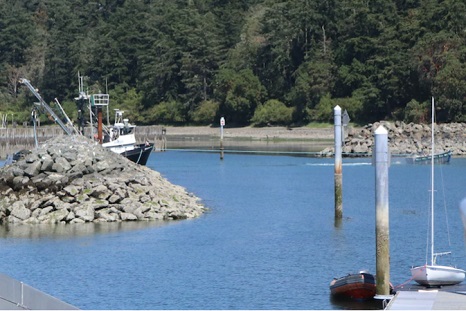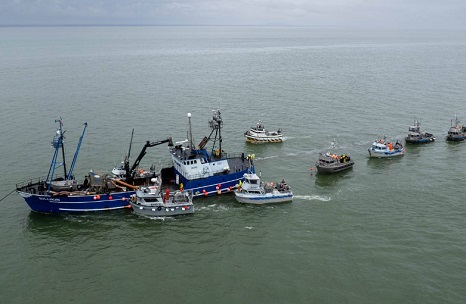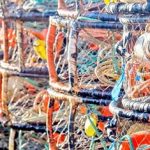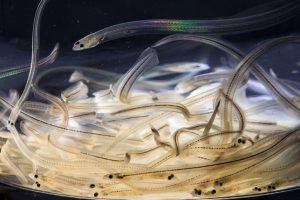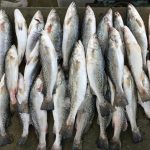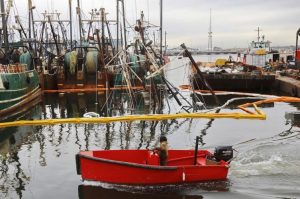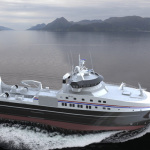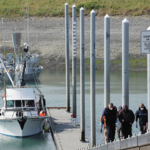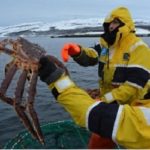Category Archives: Featured
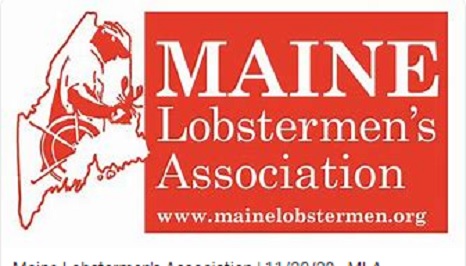
Statement from the Maine Lobstermen’s Association
The Maine Lobstermen’s Association has issued the following statement following the U.S. District Court for the District of Columbia’s decision in Maine Lobstermen’s Association v National Marine Fisheries Service. “The federal district court and the National Marine Fisheries Service (NMFS) have failed Maine’s lobster industry. It has become crystal clear that neither grasp the devastating impacts their decisions will have on the Maine lobster industry, our coastal communities, and the State of Maine. The court’s decision provides a blank check for NMFS to continue to use admitted “worst case scenarios” and disregard actual data in its regulation of a fishery that has zero documented right whale entanglements over the last 18 years. This disappointing decision puts the future of Maine’s lobstering heritage at great risk, and along with it, the livelihoods of thousands of hard-working men and women. But this is not the end. We won’t go down without a fight.” 08:48
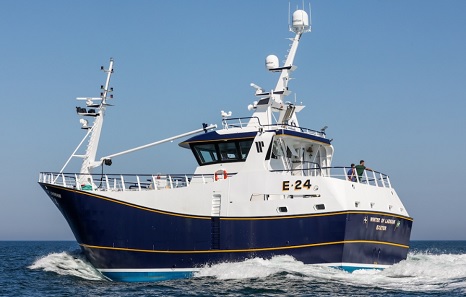
New Build: Raising the Bar with Space and Comfort
The first impression is that there’s plenty of space on board, and Winter of Ladram really does have far more room to work and carry gear than any conventional crabber in the UK fleet. The working deck forward is enclosed under a shelterdeck that feels like a ballroom, with room to stack pots six high and a surprising amount of overhead height. Nobody’s going to have to worry about banging their head here. ‘This is a unique design and a new take on the south-west crabber, with much more security and comfort for the crew. This is a new generation of vessel. It also has ten berths on board so there’s space for researchers and others.’ Photos, >click to read< 13:21
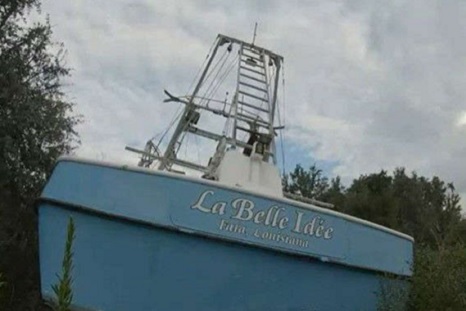
Shrimper hit by thieves after Hurricane Ida stranded his boat
A Lafourche Parish shrimper said Tuesday he is left with nowhere to turn, as thieves have begun cannibalizing his fishing vessel that was washed aground more than a year ago by Hurricane Ida. Rodney Verdin’s boat the F/V La Belle Idee remains stranded in the marshes of Golden Meadow. “It’s selfish of people to take advantage of us when we’re already down,” Rodney’s wife Rita Verdin said. Rodney has been a commercial shrimper in Golden Meadow for most of his life. He grew up in a nearby camp, generations old, from which he later ran his business, until Ida wiped it off the map. “That’s my life, that’s my whole business,” he said. “I can’t really do anything else. I’m almost too old to go find another job. Trying to do what I can … we aren’t giving up hope.” >click to read< 07:09
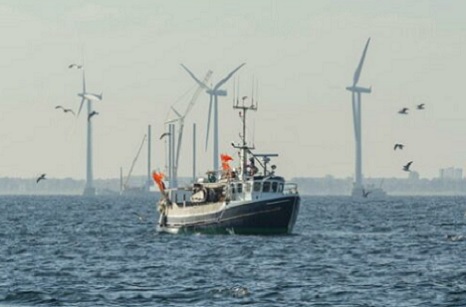
Shetland fishing industry ‘flung by the wayside’ for offshore wind farms
Addressing a session during the parliamentary Westminster Energy, Environment & Transport Forum policy conference, Shetland Fishermen’s Association (SFA) executive officer Daniel Lawson said his industry had “big concerns” over the UK’s plans for renewables off the islands. “All of the things we saw with the onset of oil, protection, partnership, working consideration, consultation, compensation, they’ve all been largely abandoned so far in this rush towards offshore wind development,” he told delegates. Mr Lawson said the organisation, which represents 115 member vessels, was dismayed by news of the latest round of offshore wind licensing as part of the Crown Estate Scotland’s ScotWind clearing process. >click to read< 09:55
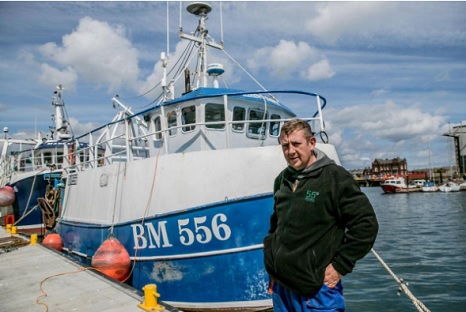
Fishermen launch legal action over North East crustation deaths
Fishermen along the North East coast have told of taking up new jobs amid a fishing crisis which has threatened their livelihoods and seen dead crustaceans wash up along the shoreline. Paul Graves, a lifelong fisherman off the Teesside and North Yorkshire coast, has taken up extra jobs over the summer to earn a living while his fishing boat is tied up in Hartlepool Mr Graves, like many other fishermen in the area, have grown frustrated by a marine life crisis which has seen hundreds of dead crustaceans wash ashore along the coast. For Paul, he’s contemplated selling his boat, owned by his family for years, due to the uncertain future. “I tied the boat up and went and did seven weeks work for a cable company,” he said. photos, >click to read< 15:49
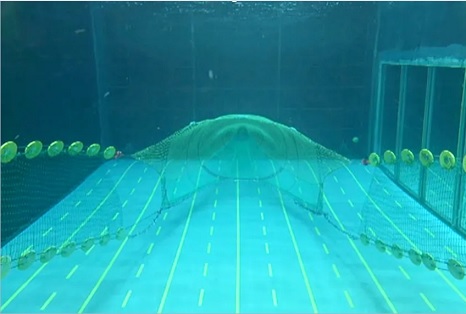
Idea for more sustainable fishers catches prize for Halifax company
Marc d’Entremont has millions of dollars in Ocean Supercluster funding to bring his idea to fruition, but another 50 grand is always welcome. His company, Katchi Technologies, headquartered in Halifax, is one of the winners of the sixth annual Cisco Global Problem Solver Challenge. Katchi has designed a replacement fish net system that eliminates contact with the ocean floor and reduces greenhouse emissions, allowing for more sustainable harvesting. “We’re basically removing the bottom trawling from the seabed,,, “We’ve invented a new method to open the net up, and we’re reducing drag and saving fuel by 30 per cent. The other piece is we’re controlling the net to ensure it stays off the seabed, using an algorithm that takes input from a whole bunch of sensors on the vessel. >click to read< 15:54
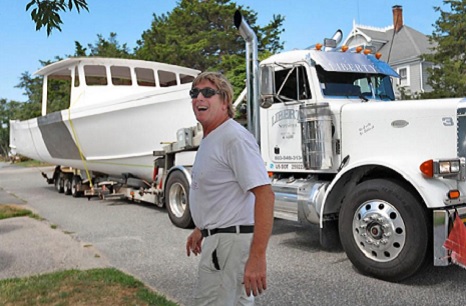
Marshfield lobsterman proud to add new boat to ‘hundreds of years of commercial fishing’
What’s 45 feet long, 17 feet wide and required a State Police detail to get to its Brant Rock home? The answer is Andy Glynn’s new lobster boat. Glynn, a Marshfield native, is a commercial fisherman and lobsterman out of Green Harbor. His new boat, an H&H Osmond Beal design, made the 315-mile trip from Steuben, Maine, earlier this month. The boat is named Bre-Jay after Glynn’s daughters Breanna and Jayanne. It’s going to be a commercial lobstering boat, but it needs some work. It’s a rough shell with the engine, shaft and rudder in place. The tanks, the decking, the windows, all the plumbing and all the electrics have to be done. It’s going to take six months to a year to finish. >click to read< 07:35
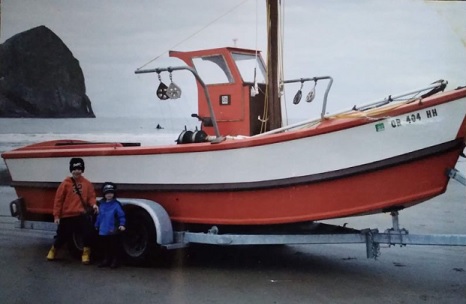
New generation keeps Pacific City’s famous dory fleet afloat
In 2003, when Shawn Farstad tracked down the dory boat his father sold in 1988, the boat was rotted and the owner was asking “a fortune.” But it had been built by Farstad’s grandfather, skippered by his dad and named for his sister, Susann, and mom, Janet. So, Farstad and his wife, Crystal, paid the price. Then, Farstad took the Su-Jan home, stripped it down to the bones and built it all over again. In this coastal home of the Pacific City dory fleet, the bond between fisher and boat runs deep. Today, Farstad builds dories and helps maintain the fleet. The demand for his work is growing as the dories grow older and need more care. 5 photos, >click to read< 10:11
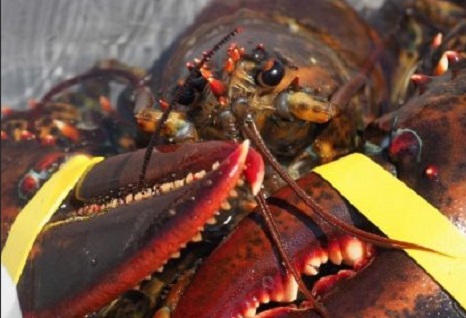
We’re eating less lobster, just as fall fishing season begins
After reaching record high prices in the spring, the shore price for a pound of Atlantic lobster has dropped dramatically, from around $18 to $5. Low demand, both domestically and internationally, and inflation are contributing to this drop, say industry professionals, who are concerned about the rising costs to fish and distribute the product as the fall lobster fishing season commences. Stewart Lamont, managing director of Tangier Lobster Company, a live lobster exporter in Nova Scotia, said consumer purchasing habits have changed since the beginning of the pandemic. >click to read< 07:47
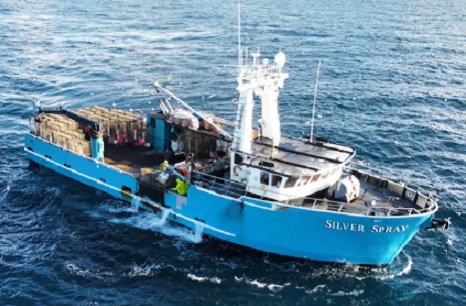
Alaska’s snow crabs have disappeared. Where they went is a mystery.
Gabriel Prout and his brothers Sterling and Ashlan were blindsided. Harvests of Alaskan king crab, the bigger, craggier species that was the star of the television show “Deadliest Catch”, have been on a slow decline for over a decade. But in 2018 and 2019, scientists had seemingly great news about Alaska’s snow crabs: Record numbers of juvenile crabs were zooming around the ocean bottom, suggesting a massive haul for subsequent fishing seasons. Prout, 32, and his brothers bought out their father’s partner, becoming part owners of the 116-foot F/V Silver Spray. They took out loans and bought $4 million in rights to harvest a huge number of crabs. It was a year that many young commercial fishers in the Bering Sea bought into the fishery, going from deckhands to owners. Everyone was convinced the 2021 snow crab season was going to be huge. And then they weren’t there. >click to read< 08:27
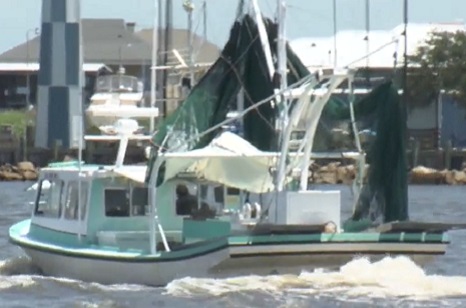
Vermilion Bay shrimper says local shrimp industry is struggling, calls on lawmakers for solutions
“I’ve been commercially fishing since 1974, so it’s been a little over forty years I’ve been doing this,” said Thomas Olander. “I am a third generation, my father did it, my grandfather did it,” he said. “Hurricanes have been a big issue for us. The BP oil spill was a real big issue for us here.” “In 2022, we’re down to 4,000 commercial fishermen.” “We’re being overregulated, we’re paying way too much for fuel, and we’re getting the absolute worst price of my whole career doing this,” he added. According to Olander, the cause is imported shrimp, as imported shrimp floods the market and domestic shrimpers are getting a smaller share and getting squeezed out. Video, >click to read< 17:03
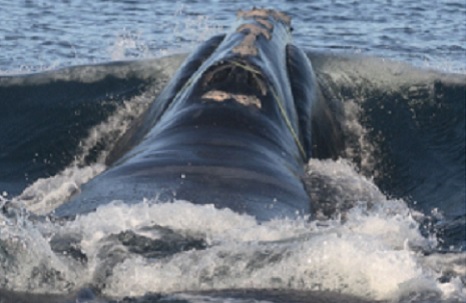
Nova Scotia: Indigenous lobster fishermen not required to observe whale closure
A Department of Fisheries and Oceans fishery closure in Nova Scotia this week to protect endangered North Atlantic Right Whales will not apply to Indigenous lobster fishermen in the area. The department is allowing ceremonial lobster fishing in St. Marys Bay to continue, raising concerns about conservation and fairness. All commercial crab and herring fisheries with unattended gear in the water are being ordered out of St. Marys Bay effective 5 p.m. on Thursday, which is standard practice after sightings. Dan Fleck of the Brazil Rock 33/34 Lobster Association represents commercial fishermen in the area. He said he’s been getting calls from concerned fishermen this week. “I would expect that the rules would be applied fairly and equitably amongst all resource users,” Fleck said. >click to read< 08:01
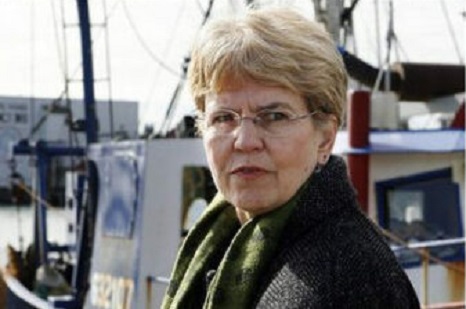
Top Biden Climate Adviser Sanctioned by National Academy of Sciences for Ethical Violations
Jane Lubchenco, the deputy director for climate and environment at the White House’s Office of Science and Technology Policy, was sanctioned by the National Academy of Sciences (NAS) on August 8, Axios reported. Lubchenco’s sanction stemmed from a violation of the NAS’ code of conduct. Specifically, Lubchenco edited a paper that appeared in the NAS’ peer-reviewed journal, Proceedings of the National Academy of Sciences, in 2020; but the paper did not use the most recent available data, and Lubchenco had a personal relationship with one of the researchers in violation of the journal’s editorial policies. Axios adds that one of the researchers was Lubchenco’s brother-in-law. >click to read< 09:46
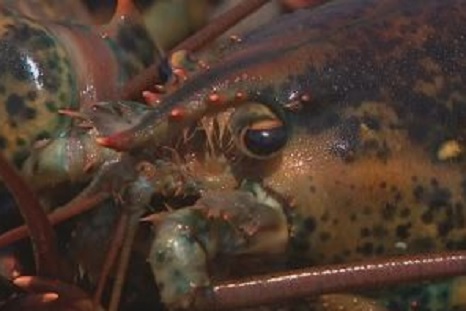
Lobster fishing is not profitable this year, fishermen explain
Rampant inflation and cooling markets are hitting Maritime lobster fishers hard. Six days after the start of fishing in the Northumberland Strait, some of them are receiving a price up to 40% lower than last year for their catch. A fishermen’s organization believes that this is not profitable. The atmosphere was not festive at the Cap-Pelé wharf on Tuesday afternoon. Fishermen have learned what price they will get for lobster this season: between $4.50 and $5 a pound. Last year at this time they were getting $7 a pound. We have prices, but it is not strong. They say it’s blocked everywhere, that lobster doesn’t sell, that’s the reason, explains Captain Guy Cormier. I take it one day at a time, we’re not dead today. >click to read< 07:50
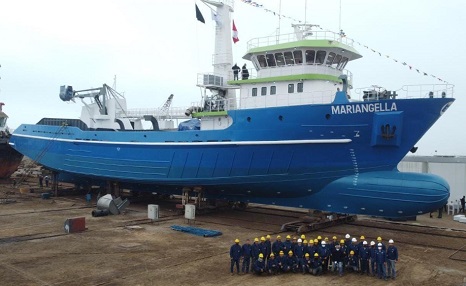
Maggiolo Launches Anchovy Catcher for Exalmar
Pesquera Exalmar, one of the major fish meal and fish oil producers in Peru, has acquired a new anchovy seiner from Construcciones Augusto Maggiolo, an 80-year-old shipyard in Callao. The newbuild replaces F/V Nueva San Telmo, an older vessel that was lost at sea in 2020. According to Nicola Rubini, Maggiolo’s general manager, the entire concept of F/V Mariangella – which takes over Nueva San Telmo’s fishing permit – came from the shipyard’s team. ‘Exalmar asked us to develop a vessel with a high level of comfort for the crew and a modern design,’ he explained. Maggiolo’s engineers came up with an audacious configuration for the waterline and bulbs, which had been submitted to tests at the University of Chile, in Valdivia. They also selected an advanced propulsion system for F/V Mariangella, taking care of the propeller design themselves. Photos, >click to read< 17:40
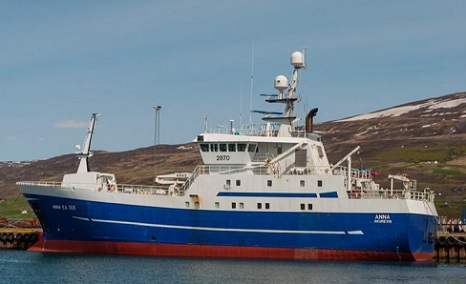
Atlantic fishing fleets ditch gill nets in favour of hook-and-line technology
The goal is higher-quality fish. That’s why one Canadian offshore fishing company is ditching gill nets in favour of hook-and-line fishing. The Arctic Fishery Alliance of Nunavut just bought a 52-metre longliner from Iceland to fish its quota of Greenland halibut (turbot) in the Davis Strait, near the Arctic Circle. In addition to adding modern processing equipment on board, the vessel will be fitted with a Mustad longline system, enabling the ship to deploy 40,000 fishing hooks daily. To fetch the best possible price in the market, a turbot fillet must be pure white. “And you don’t get that using gill nets,” said Earle. >click to read< 10:53
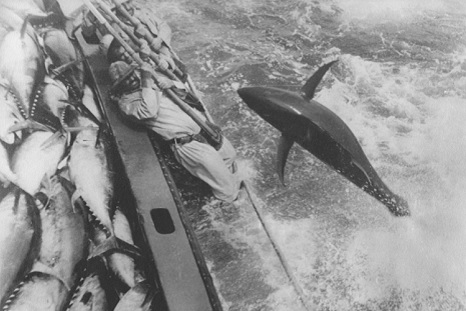
TUNAVILLE – Point Loma’s proud Portuguese past, and present
The Point Loma boundaries of Lowell to Talbot streets, and as high up the peninsula as Willow Street, by the 1930s, had earned the moniker “Tunaville.” Here has been home to an immigrant Portuguese populace settled as far back as 1885, and by the 1940s had become a bustling tuna fishermen’s haven. Early Portuguese fishing settlements grew along the base of Kellogg and McCall streets in La Playa and Roseville. Interestingly, the natural tidelands at the time meandered as far inland as today’s Scott Street. “In remarkably short order, each fisherman owned his own dory. photos, >click to read< 14:58
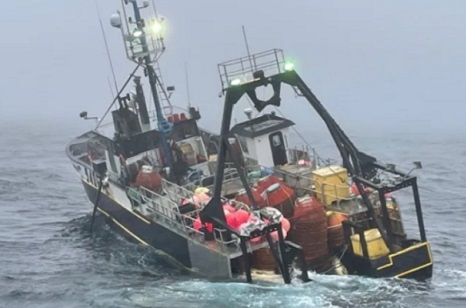
Supply ships, Coast Guard help rescue seven people and two dogs from sinking fishing vessel
“This was a good day. This is as best as you can hope for in a situation that’s grave like this,” said Mark Gould, a regional supervisor with the Coast Guard’s Marine Search and Rescue. The mayday call came around 1:00 a.m. from the F/V Gypsy Mariner, a fishing boat from Quebec, as it was taking on water about 60 nautical miles off St. John’s. The Maritime Rescue Sub Centre directed all nearby vessels to the scene. The two supply ships, the Atlantic Griffon and the Atlantic Shrike, and a Canadian Forces Hercules aircraft were the first to arrive at the scene. A Coast Guard cormorant helicopter arrived about 30 minutes later. “We did drop a pump to the vessel just in case there was a way to save it, but it quickly became clear that that wasn’t going to be an option,” >click to read< 21:33
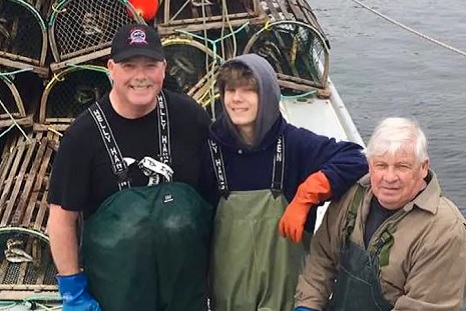
Regulations coming to Atlantic Canada could ensure safety of endangered right whales
Last month, Sierra Club Canada held a web discussion where it talked about the endangered North Atlantic right whale population in the Gulf of St. Lawrence and how new changes coming to the fishing industry could help protect them. DFO has been working to develop rope systems that are designed to release if too much force is applied suddenly. Currently, there are no regulations for fisherman to use low-bearing gear. Jenn Michael Lewis, who helps catch lobster in St. Peters Bay, said the response from fishermen in the community about the new rope regulations will likely be a negative one. “It has been a point of tension. There isn’t many right near St Peters Bay, many fishermen don’t see the point in switching,” Lewis said. >click to read< 08:10
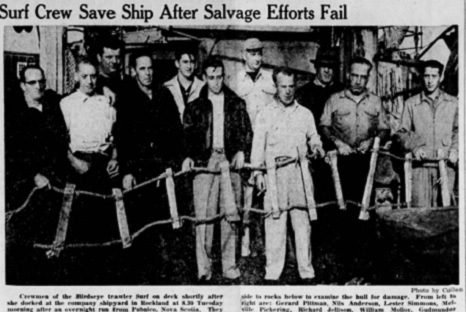
The Birds Eye Fleet
In 1954, General Foods Birdseye Division was a big part of Rockland’s waterfront. In addition to a fish processing operation on Tillson Avenue, the company had a shipyard on Mechanic Street that maintained a fleet of nine fishing boats. On the morning of Wednesday, Oct. 13, 1954, the Surf went aground on the ledges of Devil’s Limb off Seal Island, to the west of Nova Scotia. The Surf was built in 1937 and was registered at 309 tons. Her length was 132 feet with a 25-foot beam, powered by a 750-horsepower diesel. Captain Douglas Schwartz of Rockland was taking the trawler and his crew of 10 men to the Grand Banks, having left the day before at 4 p.m. It is believed the trawler’s compass was off. Men who have sailed the area observe the Surf was 15 to 20 miles off course when she ran aground. >click to read< 11:53
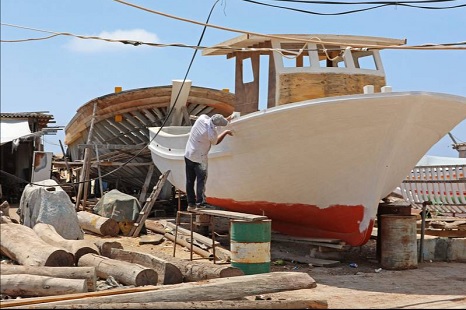
Syria’s last traditional boat-makers keep ancient craft afloat
Khaled Bahlawan hammers nails into a traditional wooden boat he built by hand, toiling under the scorching sun on Syria’s Mediterranean coast to preserve a disappearing ancient skill. “We are the last family that makes wooden ships and boats in Syria,” said the 39-year-old on the shores of Arwad Island, near the city of Tartus. “This is the legacy of our ancestors… We are fighting to preserve it every day”. Located about three kilometres (less than two miles) off the coast, Arwad is Syria’s only inhabited island and a haven of peace in a country torn by 11 years of war. Hundreds of workers, residents and visitors commute to and from there every day in wooden boats, mostly built by the Bahlawan family. >click to read< To see a complete photo gallery, >click here to view< 16:14
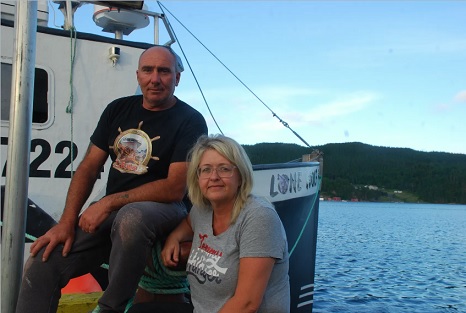
Multi-million dollar capelin fishery is a bust for eastern Newfoundland
The Lone Wolf is lying idle at the wharf in Hickman’s Harbour, Trinity Bay. The only sound is the lap of water against hull, the occasional screech of sea gulls flying past, hunting for food. Earlier this year the Department of Fisheries and Oceans (DFO) set a quota of around 15,000 metric tonnes for fishing zones from the south coast (area 3Ps) to the North East coast (2J, 3K and 3L zones). Inshore licenses, like the one the Marshes have, grant them just 12,000 pounds of crab. “This year we landed $82,000 worth,” she said. And that’s not a whole lot of money to pay a crew and cover the expenses of running a boat. “Last year I could fuel up my boat for $800,” she noted. “This year it costs $1600.” Capelin could have added another $30-40,000 to their seasonal revenue, making it the second most important fishery for their enterprise. But they’re not fishing it. Why not? It’s complicated. >click to read< 11:05

He had 48 hours left to live. So he married his girlfriend of 17 years
Earlier this summer, 35-year-old Billy Burgoyne got the worst news anyone could receive: doctors told him that his long fight with cancer was soon going to end because he only had a short time to live. When he went for another appointment on July 14, the timeline was much worse. “He was told he had about 48 hours left to live,” said Nikita Mahar, his longtime girlfriend. Burgoyne and Mahar had been a couple for almost 17 years. Immediately after the appointment, they decided they would officially tie the knot. He and Nikita both worked in the commercial lobster fishery. Billy also worked on herring fishing crews and recreational fishing was another of his great loves in life. >click to continue reading< 20:46
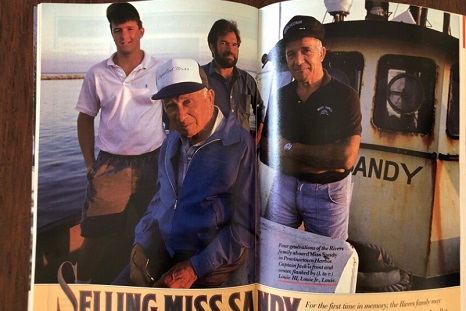
Louie Rivers
Louie Rivers was among the finest men I’ve known, and times spent aboard the Miss Sandy are my best memories on the water. Our days began before the sun, walking dark Provincetown streets to the pier. This was the 1980s. Young men ending their adventures, as we were starting ours, made lewd comments about this odd pair, a young long-haired bearded guy alongside a squat older man with arms like thick oak limbs. Louie would just laugh. In all our years I never saw him get into an argument or fight, a rare thing among fishermen. Miss Sandy was tied up at MacMillan Wharf like a dog waiting to get off leash. >click to continue reading< 16:17
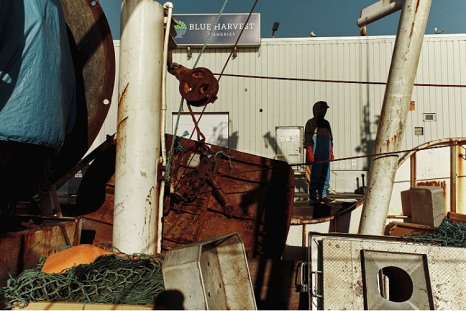
Senators Demand Federal Scrutiny of Private Equity’s Incursion Into Fishing
Three U.S. senators, including two members of a Senate subcommittee that oversees the fishing industry, are calling for greater federal scrutiny of private equity’s incursion into East Coast commercial fishing. The ProPublica/New Bedford Light investigation found that a federal regulatory system known as “catch shares,” which was adopted in 2010 to reduce overfishing, has fostered private equity’s consolidation of the industry at the expense of independent fishermen. The single largest permit holder in the New England groundfish industry is Blue Harvest Fisheries, which has rights to catch 12% of groundfish, approaching the antitrust cap of 15.5%. The current antitrust cap “fails to prevent excessive consolidation in the fishery,” said Geoff Smith, one of 18 members of the New England Fishery Management Council, which advises NOAA. >click to read< 10:23
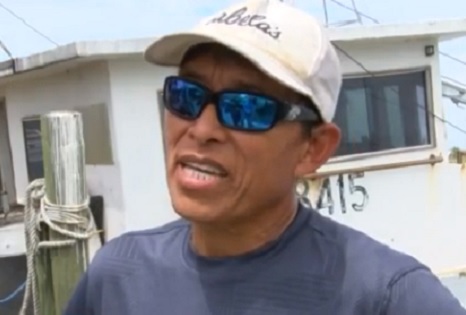
Texas: Local shrimpers stay in the bays catching live bait
Local shrimpers spend their morning in the bays catching shrimp for live bait not for people to eat. “Since Gulf King is gone. Everything started going downhill,” said one local shrimp boat captain. Gulf King Seafood, once called Aransas Pass its home with the largest fleet of Gulf Coast shrimp boats in the United States. Over 20 years ago, Gulf King moved locations. Soon after local shrimpers followed trying to find more opportunities. Now the only place selling gulf shrimp in Aransas Pass is Erikson and Jensen Seafood. Right now, their fleet is stationed in Florida. Catching gulf shrimp from Florida to Texas. Video, >click to read< 09:23

RIP Pussen, the feral harbour cat.
For those who have lived and worked on the harbour in Newlyn over the past 10 years, the sight of a black and white feral cat hunting for rats in the rocks by the RNLI boathouse wouldn’t have been a strange sight. She had a great bounty there which kept her fit. But as for her main food supply she depended on the many pigeons that housed in the wall face on the way to the net sheds opposite Trelawney fish shop. It was in this location that I was lucky enough to see her engage in what she did best. I rigged gillnets in the end shed which gave me a front seat to the act. I called her to me almost daily after that but she showed no interest until I saw her pass one day and offered her some fresh ham from my lunch. This she accepted from a distance,,, photos, Freddie Bates, adopted cat companion. >click to read< 10:23
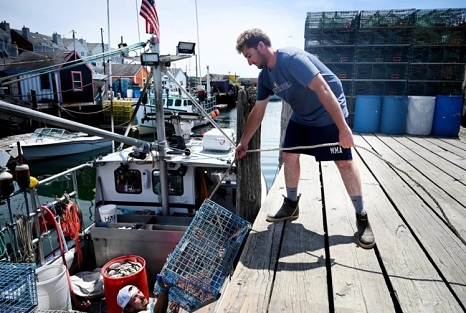
Economic destructive inflation: Falling wholesale prices put squeeze on Maine lobstermen
The price lobstermen got for their catches hovered around $8 a pound in 2021, which they said was one of their best years ever, with a plentiful haul, high prices and stable costs. This year, however, is shaping up to be one of the worst Maine lobstermen have faced in decades, with prices falling to about half of what they were last year. Prices have dropped by half and wholesalers say demand also is down sharply as inflation has weakened the economy and hurt the market for shellfish. With consumers paying high prices to fill up gas tanks and to buy groceries, lobsters are a luxury that 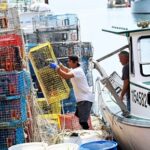 many cross off their shopping lists. Inflation is hitting lobstermen, too, particularly when they fill up fuel tanks before heading out to tend their traps. They say pretty much everything they need costs more this year, from fuel, oil and repairs for their engines to ropes and traps. Bait, too,,, photos, >click to read<
many cross off their shopping lists. Inflation is hitting lobstermen, too, particularly when they fill up fuel tanks before heading out to tend their traps. They say pretty much everything they need costs more this year, from fuel, oil and repairs for their engines to ropes and traps. Bait, too,,, photos, >click to read<






